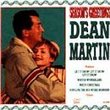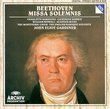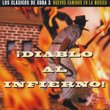| All Artists: Paul Hindemith, Simone Young, Hamburg State Philharmonic Orchestra, Carsten Wittmoser, Falk Struckmann, Harald Stamm, Ho-yoon Chung, Inga Kalna, Jurgen Sacher, Moritz Gogg, Par Lindskog, Peter Galliard, Renate Spingler, Scott MacAllister, Susan Anthony Title: Hindemith: Mathis der Maler Members Wishing: 0 Total Copies: 0 Label: Oehms Classics Release Date: 10/30/2007 Genre: Classical Style: Opera & Classical Vocal Number of Discs: 1 SwapaCD Credits: 1 UPC: 812864018158 |
Search - Paul Hindemith, Simone Young, Hamburg State Philharmonic Orchestra :: Hindemith: Mathis der Maler
 | Paul Hindemith, Simone Young, Hamburg State Philharmonic Orchestra Hindemith: Mathis der Maler Genre: Classical
|
CD DetailsSimilarly Requested CDs
|
CD ReviewsSuperb Live Version of Hindemith's Operatic Masterpiece Nicholas A. Deutsch | New York, NY USA | 06/17/2010 (5 out of 5 stars) "This 2005 live recording of Hindemith's greatest full-length opera is very welcome. While the Symphony of the same name is one of the composer's best-known works, the opera is rarely heard. It's a wonderful piece, one which, like Verdi's "Don Carlos" or Mussorgsky's "Boris Godunov" succeeds in creating a huge and convincing tapestry of religious, social, political and personal events and concerns. The inner struggle of the protagonist, the 16th century painter Matthias Gruenewald, to reconcile his artistic calling with his desire to take part in the turmoil of the Peasants' War, is movingly delineated, and there are sharply drawn portraits of the other people in his life. Hindemith, who wrote his own libretto, shows great dramatic insight and theatrical savvy in contrasting intimate private scenes with large-scale public ones (the latter including a book-burning, a bloody onstage battle and a nightmarish dream sequence). The score's reach is wide, from German folksong to passages of Wagnerian amplitude and passion. The subject matter was clearly of deep personal meaning to the composer, and the result is one of his finest scores and most powerful works.
"Mathis" on disc starts in 1961 with excerpts on DG (Dietrich Fischer-Dieskau, Pilar Lorengar, Donald Grobe), later issued on CD with Hindemith's opera "Cardillac" (now available from Arkiv Music). In 1979 came the first, and so far only truly note-complete version (EMI, issued on CD in 1994), with Fischer-Dieskau and conductor Rafael Kubelik with his Bavarian Radio Symphony Orchestra and Chorus lending great distinction, along with tenor James King and a generally excellent male cast; even with a somewhat studio-bound feel and less than ideal female soloists this remains an essential set, as well as the only one with full German-English-French libretto. Fortunately, it's available again from Arkiv Music - thank you! The Wergo version (issued 1994) conducted by Gerd Albrecht has its strengths: it's theatrically exciting, and solidly cast. On the minus side, Albrecht tinkers with the orchestration a bit, there are a few cuts, flat radio-broadcast sound and German-only libretto. Also in circulation (Opera Depot) is a 1968 "pirate" from the Hamburg Opera, a theatrically exciting if textually frustrating release, with thrilling work from conductor Charles Mackerras and the orchestra, fine performances by tenor Richard Cassilly, mezzo Tatiana Troyanos, bass Hans Sotin and others, offset by a passionate but vocally imperfect Mathis (for whom the high notes have been written out), a uneven Regina, and above all a mutilated text: roughly 1/3 of the opera - a full hour of music - has vanished in a welter of cuts, large and small. This new Hamburg Opera set makes amends: there is just one cut, of 15 measures, in the Mathis/Ursula duet in Scene 3, and the two singers also omit their solo lines over the 34 measures of the ensuing offstage chorus (who can blame them? the duet is a marathon). The performance, in excellent sound, has a rock-solid foundation in the work of conductor Simone Young and the Hamburg Philharmonic and in baritone Falk Struckmann's commanding Mathis - a Wotan in power and also tenderness. Both tenors, Scott MacAllister (Albrecht) and Par Lindskog (Schwalb) make a strong impression, as do the sopranos, Inga Kalna (Regina) and Susan Anthony (Ursula), who draw vivid and sympathetic portraits. The remainder of the cast is strong, as is the chorus, and there's a genuine sense of occasion and of teamwork. This is an exciting performance, with the scenes of mob violence in particular registering far more disturbingly than on the Kubelik set. But: no libretto at all, only a lengthy (though not quite comprehensive) synopsis, in German and English. This is no way to treat an important issue of one of the masterpieces of 20th century opera." |

 Track Listings (14) - Disc #1
Track Listings (14) - Disc #1








